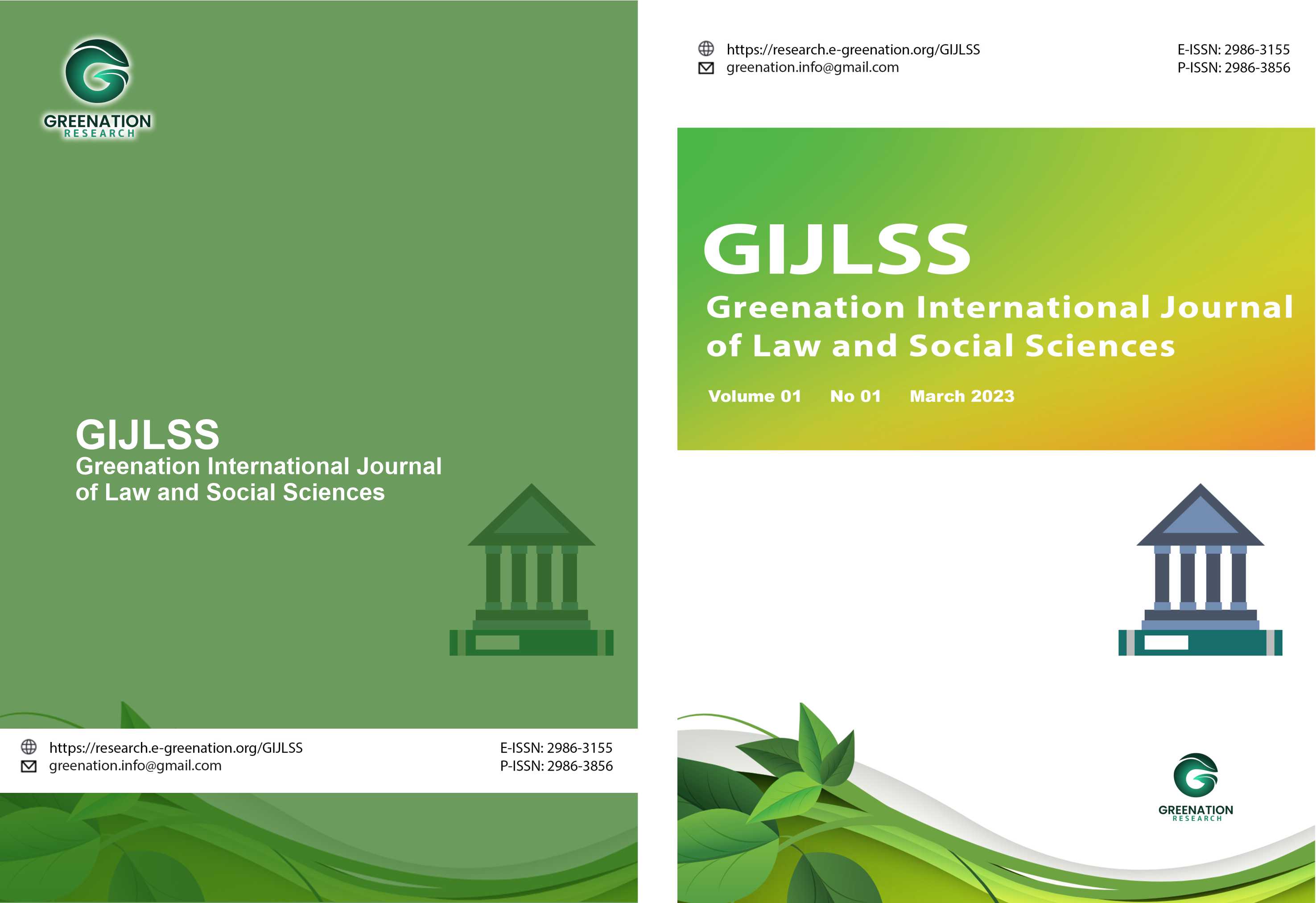The Influence of Supervision and Motivation on Teacher Performance (Case Study at Smpn 40 Bandung City)
DOI:
https://doi.org/10.38035/gijlss.v2i3.249Keywords:
Supervision, Motivation, PerformanceAbstract
Supervision and motivation are factors that affect a person's performance. Based on observations in the field, the researchers found that there were several indications that were considered less than optimal both in terms of supervision and motivation which were feared to affect teacher performance which could have a bad impact on the organization itself. The low teacher performance is thought to be caused by inappropriate supervision of the principal, apart from supervision problems, it is also suspected to be due to motivational problems. Motivation can also be seen as an integral part of the teaching and learning process that is less than optimal. The purpose of this research is to describe supervision, work motivation and performance of SMPN 40 Bandung City and to examine the influence of supervision and motivation on performance (a study at SMPN 40 Bandung City). The method used is descriptive survey method and explanatory survey. The type of investigation in this study is causality. The unit of analysis is the teachers of SMPN 40 Bandung City with a population of 56 teachers. The time horizon in this study is cross sectional and the analytical methods used are frequency distribution and path analysis The findings of this study are the principal of SMPN 40 Bandung City has appropriate supervision, high motivation of SMPN 40 Bandung City teachers and high performance SMPN 40 Bandung City teachers. Supervision and motivation affect teacher performance. However, when viewed partially, it turns out that motivation is more dominant in influencing performance than supervision, therefore motivation is a priority in improving teacher performance
References
Bafadal, Ibrahim. 2003. Manajemen Peningkatan Mutu Sekolah Dasar, Dari Sentralisasi Menuju Desentralisasi. Jakarta: Bumi Aksara
Becker, Huselid, dan Ulrich. 2001. Human Resources Management, New York: Houghton Miffin Company.
Engkoswara. 2010. Dasar-dasar Administrasi Pendidikan. Jakarta: Depdikbud, Dirjen Dikti
Flippo, Edwin B. 2000. Manajemen Personalia. Edisi Keenam. Jilid 2. Jakarta: Erlangga
Ghazali, Imam. 2007. Analisis Multivariat Dengan Program SPSS. Semarang: BPP Undip
Indriantoro, Nur dan Bampang Supomo. 2009. Metodologi Penelitian Bisnis untuk Akuntansi dan Manajemen. Edisi Pertama. Yogyakarta: BPFE Yogyakarta
Kusnendi. 2008. Model-model Persamaan Struktural. Bandung: Alfabeta
Mangkunegara, Anwar Prabu. 2006. Manajemen Sumber Daya Manusia. Bandung: PT Remaja Rodaskarya
Majalah Portalhr. No. 08 - tahun 2004. Kompetensi Resep Ajaib. Melalui http://www.portalhr.com/majalah/edisisebelumnya/strategi/1id198.html
Mathis, Robert, L., dan Jackson, John H. 2003. Human Resources Management. Tenth Edition. Ohio: South-Western
Mulyasa, Enco. 2003. Kurikulum Berbasis Kompetensi: Konsep, Karakteristik, dan Implementasi. Bandung: Remaja Rodaskarya
Nana Sudjana. 2000. Dasar-dasar Proses Belajar Mengajar. Bandung: Sinar Baru
Nana Sudjana. 2000. Dasar-dasar Proses Belajar Mengajar. Bandung: Sinar Baru
Panuju, R. 2001 Komunikasi Organisasi: Dari Konseptual Teoritis ke Empirik. Yogyakarta: Pustaka Pelajar.
Rakhmat, R. 2007. Psikologi Komunikasi. Bandung: Remaja Rodaskarya
Riduwan dan Engkos Achmad Kuncoro. 2012. Cara Menggunakan dan Memaknai Analisis Jalur (Path Analysis). Bandung: Alfabeta
Robbins, S.P. 2009. Perilaku Organisasi (Organizational Behaviour), Person Education International, Pearson Hall, New Jersey, Jilid I dan II, Alih Bahasa Angelica, D, Cahyani, Dan Abdul. Jakarta: Salemba Empat
Rohiat. 2009. Manajemen Sekolah, Teori Dasar dan Praktek. Bandung: PT Refika Aditama
Sahertian, Piet, A. 2000. Profil Pendidikan Profesional. Yogyakarta: Andi Offset
Sahertian, Piet, A. 2000. Konsep Dasar & Teknik Supervisi Pendidikan dalam Pengembangan Sumber Daya Manusia. Jakarta: Rineka Cipta
Samana, A. 2000. Profesionalisme Keguruan. Yogyakarta: Kanisius
Saud, Udin Syaefudin. 2009. Pengembangan Profesi Guru. Bandung: Alfabeta
Siagian, Sondang P. 2002. Kiat Meningkatkan Produktivitas Kerja: PT Rineka Cipta
Sinungan, 2003 Produktivitas, Apa dan Bagaimana. PT. Bumi Aksara, Jakarta
Soekamto, Toeti dan Udin Saripudin Winataputra. 2000. Teori Belajar dan Model Pembelajaran. Jakarta: Depdikbud, Dirjen Dikti
Sovyia Desianty. 2005. Pengaruh Gaya Kepemimpinan terhadap Komitmen Organisasi Pada PT POS Indonesia (PERSERO) Semarang. Jurnal Studi Manajemen dan Organisasi. Vol 2 No 1. H 69-84
Stoner, et al. 2000. Manajemen. Jilid I. Jakarta: PT Buana Ilmu Populer
Sugiyono. 2011. Metode Penelitian Kuantitatif, Kualitatif, dan R&D. Bandung: Alfabeta
Thoha. 2000. Perilaku Organisasi: Konsep Dasar dan Aplikasinya. Jakarta: Raja Grafindo Persada.
Toto Toharuddin. 2002. Kinerja Profesional Guru. Bandung: Universitas Pendidikan Indonesia
Umar, Husein. 2008. Metode Penelitian untuk Skripsi dan Tesis Bisnis. Edisi Kedua. Jakarta: PT Raja Grafindo Persada
Usman. 2008. Menjadi Guru Profesional. Bandung: Remaja Rodaskarya
Veithzal. Rivai. 2004. Kepemimpinan dan Perilaku Organisasi. Edisi Kedua. Jakarta: PT Raja Grafindo Persada
Winataputra, Udin S. 2008. Teori Belajar Minat dan Pembelajaran. UT
Undang-undang No.14 tahun 2005 tentang Guru dan Dosen
Downloads
Published
How to Cite
Issue
Section
License
Copyright (c) 2024 Irma Rahmawati, Widiya Avianti, Deden Komar Priatna

This work is licensed under a Creative Commons Attribution 4.0 International License.
Copyright :
Authors who publish their manuscripts in this journal agree to the following conditions:
- Copyright in each article belongs to the author.
- The author acknowledges that the Greenation International Journal of Law and Social Sciences (GIJLSS) has the right to be the first to publish under a Creative Commons Attribution 4.0 International license (Attribution 4.0 International CC BY 4.0).
- Authors can submit articles separately, arrange the non-exclusive distribution of manuscripts that have been published in this journal to other versions (for example, sent to the author's institutional repository, publication in a book, etc.), by acknowledging that the manuscript has been published for the first time at GIJLSS.























